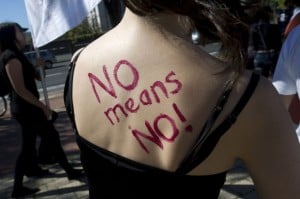South African women not more likely to be raped than to learn how to read
This article is more than 9 years old
 Is a woman in South Africa really more likely to be raped than to learn how to read? It is a recurring claim and one that dates back as far as 2002. Over the years it has been cited by a variety of news organisations and websites including the SABC and News24, The Guardian and Cosmopolitan UK.
Is a woman in South Africa really more likely to be raped than to learn how to read? It is a recurring claim and one that dates back as far as 2002. Over the years it has been cited by a variety of news organisations and websites including the SABC and News24, The Guardian and Cosmopolitan UK.An Africa Check reader who recently came across the claim asked us if there was any truth to it.
Tom Moultrie, an associate professor at the University of Cape Town and director of the Centre for Actuarial Research, debunked the claim in a 2010 article. Describing it as a “statistical horror”, he outlined three distinct problems with the statement.
Firstly, Moultrie argued that the comparison was invalid. “Learning how to read is an event that can occur only once in one’s life (and, typically, at a very young age). It is not, in any meaningful sense, repeatable…The experience of rape, by contrast, is both repeatable and exposure-dependent. The comparison is then one of apples and pears.”
Secondly, he wrote that the phrase “more likely to be raped” created a “slew of statistical problems”.
Finally, Moultrie found that available data did not support the claim. A 1998 demographic and health survey showed that 93.1% of South African women aged 15 to 49 had learned to read. And while the number of rapes reported to police is notoriously low, only 4.5% of the same demographic reported being forced, through the use of threats or violence, to have sexual intercourse against their will. A further 2.4% said they had been coerced into having sexual intercourse.
In conclusion, Moultrie wrote: “The incidence and extent of rape in South Africa is a major, major issue and is a shocking reflection on the country, and its attitudes to women, gender roles, patriarchy and domestic violence. Nothing can be said to condone it or explain it away. However, activists should not demean and undermine the severity of the problem by simply making up numbers and facts to suit their position. It helps no-one, and achieves nothing (and is, if anything, counterproductive).” - 26/05/2014
Additional reading:
https://africacheck.org/factsheets/guide-rape-statistics-in-south-africa/
https://africacheck.org/reports/why-it-is-wrong-to-call-s-africa-or-any-country-the-rape-capital-of-the-world/

Add new comment